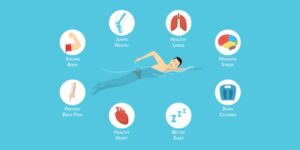Supplements for Healthy Aging: What Works and What Doesn’t


Meta Description: Discover the best supplements for healthy aging that are backed by science. Learn which supplements work, which don’t, and how to support longevity with proper nutrition.
Introduction
As we age, our bodies undergo significant changes that can affect our health, energy levels, and overall well-being. Many people turn to supplements to maintain their health and slow down the aging process. But with so many options available, how do you know which supplements actually work?
In this article, we’ll explore the most effective supplements for healthy aging, those that lack scientific support, and how to make informed choices for your long-term health.
Why Consider Supplements for Healthy Aging?
Aging is a natural process, but it often comes with challenges like reduced bone density, cognitive decline, and decreased energy. While a balanced diet is the foundation of good health, supplements can provide additional nutrients that may be difficult to obtain from food alone.
Scientific research suggests that certain supplements can improve longevity, support cognitive function, and maintain physical vitality. However, others may be ineffective or even harmful if misused. Let’s break down the best and worst supplements for healthy aging.
Supplements That Work for Healthy Aging
- Omega-3 Fatty Acids
Why It Works: Omega-3 fatty acids, found in fish oil, are known to support brain health, reduce inflammation, and improve heart function.
Benefits:
Reduces risk of cardiovascular disease
Supports cognitive function and memory
May lower inflammation linked to age-related conditions
Recommended Dosage: 1,000–2,000 mg of combined EPA and DHA per day.
Best Sources: Fish oil, krill oil, and algae-based omega-3 supplements for vegetarians.
- Vitamin D and Calcium
Why It Works: Essential for bone health, these nutrients help prevent osteoporosis—a common issue with aging.
Benefits:
Strengthens bones and teeth
Supports immune function
Reduces risk of fractures
Recommended Dosage:
Vitamin D: 600–800 IU daily (higher for older adults)
Calcium: 1,000–1,200 mg per day
Best Sources: Vitamin D3 supplements and calcium carbonate or citrate.
- Coenzyme Q10 (CoQ10)
Why It Works: CoQ10 supports energy production in cells and has antioxidant properties that combat oxidative stress.
Benefits:
Boosts energy levels
Supports heart health
May improve mitochondrial function in older adults
Recommended Dosage: 100–200 mg per day.
Best Sources: Ubiquinol form of CoQ10 for better absorption.
- Probiotics
Why It Works: Probiotics promote a healthy gut microbiome, which is essential for immune function and nutrient absorption.
Benefits:
Improves digestion and gut health
Enhances immune response
May reduce inflammation
Recommended Dosage: 10–20 billion CFUs daily with diverse strains (Lactobacillus and Bifidobacterium).
Best Sources: High-quality, multi-strain probiotic supplements.
- Magnesium
Why It Works: Magnesium supports muscle function, sleep quality, and cardiovascular health.
Benefits:
Regulates blood pressure
Supports muscle and nerve function
Improves sleep and relaxation
Recommended Dosage: 300–400 mg per day.
Best Sources: Magnesium citrate or glycinate for better absorption.
Supplements That May Not Work (Or Need More Research)
- Collagen Supplements
Claim: Collagen supplements promote skin elasticity and joint health.
Reality: While small studies show some promise, the body may break down collagen into amino acids, making its effects uncertain.
Better Approach: Consume collagen-rich foods (bone broth) and support collagen production with vitamin C.
- Antioxidant Supplements (High Doses)
Claim: High doses of antioxidants prevent aging by reducing oxidative stress.
Reality: While antioxidants are vital, excessive supplementation may disrupt the body’s natural defense systems.
Better Approach: Get antioxidants from whole foods like berries, leafy greens, and nuts.
- Resveratrol
Claim: Mimics the effects of calorie restriction and promotes longevity.
Reality: Human studies are limited, and the effectiveness of resveratrol in supplement form is uncertain.
Better Approach: Enjoy resveratrol from natural sources like red grapes and dark chocolate.
- Multivitamins
Claim: Provide all essential vitamins and minerals for overall health.
Reality: For most people with a balanced diet, multivitamins offer minimal benefit.
Better Approach: Focus on specific deficiencies through targeted supplementation.
Choosing the Right Supplements for Aging Well
- Identify Your Needs: Consult a healthcare professional to assess your nutritional gaps through blood tests.
- Quality Matters: Choose reputable brands that undergo third-party testing for purity and potency.
- Balanced Diet First: Supplements should complement—not replace—a nutrient-rich diet.
- Avoid Mega-Doses: Stick to recommended daily intakes to prevent toxicity or side effects.
Lifestyle Factors That Enhance Healthy Aging
While supplements can provide a boost, lifestyle choices play a critical role in aging well:
- Balanced Diet: Emphasize whole, nutrient-dense foods like fruits, vegetables, lean proteins, and healthy fats.
- Regular Exercise: Engage in a mix of cardio, strength training, and flexibility exercises.
- Quality Sleep: Aim for 7-9 hours of restorative sleep each night.
- Stress Management: Practice mindfulness, meditation, or hobbies that reduce stress.
- Social Connections: Maintain strong social bonds for emotional and mental health.
Common Myths About Anti-Aging Supplements
- “More Is Better”: Excessive supplementation can cause harm—balance is key.
- “Natural Means Safe”: Even natural supplements can interact with medications or cause side effects.
- “Supplements Reverse Aging”: No pill can stop aging, but supplements can support healthier aging when combined with a healthy lifestyle.
Conclusion: What Works and What Doesn’t
When it comes to supplements for healthy aging, evidence supports omega-3 fatty acids, vitamin D, calcium, probiotics, and magnesium as effective aids. Meanwhile, trendy options like collagen, high-dose antioxidants, and resveratrol need more research before they can be recommended widely.
By prioritizing whole foods, regular physical activity, and evidence-based supplements, you can take meaningful steps toward aging gracefully and maintaining a high quality of life.
Always consult a healthcare professional before starting any new supplement regimen to ensure safety and efficacy tailored to your needs.
FAQs
- What supplements are best for brain health as you age?
Omega-3 fatty acids, B vitamins (especially B12), and antioxidants support cognitive function. - Is it safe to take supplements every day?
Yes, when taken at recommended doses and under medical supervision, daily supplements can be safe and beneficial. - Can supplements prevent wrinkles and skin aging?
Certain supplements like omega-3s and vitamin C can support skin health, but a holistic approach with hydration and sun protection is crucial. - Do seniors need different supplements?
Older adults may require more vitamin D, calcium, and B12 due to age-related absorption issues. - How long does it take for supplements to show effects?
Results vary, but most supplements show noticeable benefits within 4-12 weeks of consistent use.




